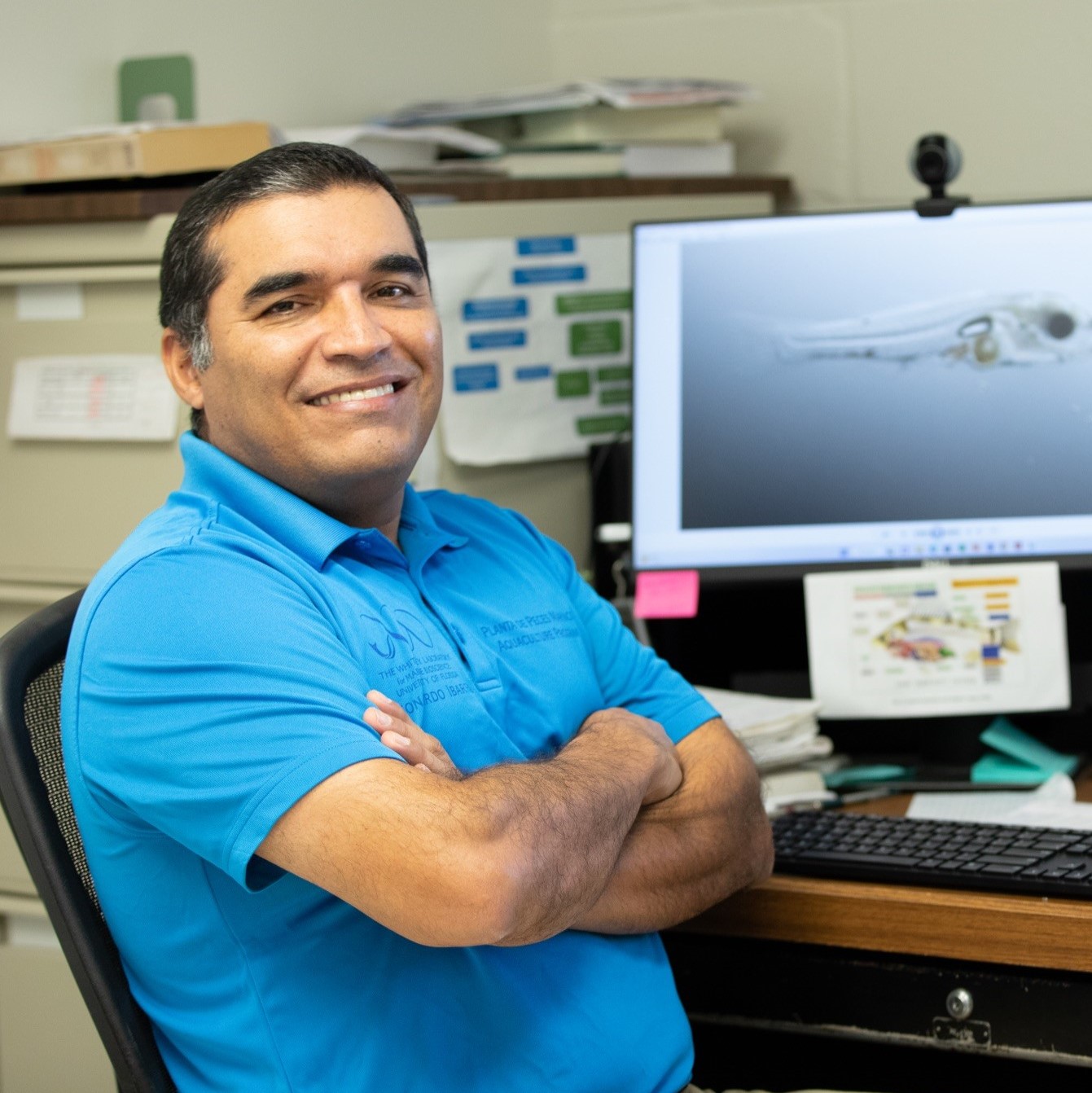 The Whitney Laboratory for Marine Bioscience
The Whitney Laboratory for Marine Bioscience

Whitney Laboratory is expanding its environmental restoration efforts into fisheries using modern scientific approaches.
Leonardo Ibarra-Castro, PhD is working to efficiently hatch and rear a number of local game fish species (Spotted Sea Trout, Redfish, Red Snapper, Snook) for reintroduction into their local habitats. Matching nutritional requirements with the fish’s gut microbiome through early ontogeny is just one of his approaches to improve growth rates and survivability.
Dr. Leonardo Ibarra-Castro continues to lead the fish aquaculture program started in 2019. During the first year, a microalgae laboratory was created for harvesting three microalgae marine species, to feed rotifers that then feed fish larvae. A facility was also built for high-density rotifer culture with an automatic production system and an additional laboratory built to complement the larvae nutrition. The broodstock facilities currently house four estuarine-marine fish species for reproduction in captivity – Red Drum, Spotted Seatrout, Common Snook and Northern Red Snapper.
In 2020, Dr. Ibarra-Castro and his team collaborated with Dr. Daniel Benneti at the University of Miami, where 10,000 red snapper juveniles were raised and 8,000 of those sent to different aquaculture centers for continued growing and research. He continues collaboration with Whitney faculty including Dr. James Strother, Dr. James Liao and Dr. Todd Osborne and IFAS faculty Dr. Frank Chapman.

Dr. Leonardo Ibarra-Castro obtained a B.S in Aquaculture from the University Autonomous of Sinaloa, Faculty of Marine Science in 1997. In 2005, under Dr. Neil Duncan, he earned a M.S. degree in Marine Fish Reproduction and in 2008 earned a Ph.D. also in Marine Fish Reproduction under Dr. Luis Sergio Alvarez-Lajonchere. Both degrees were obtained at the Research for Food and Development A.C. from Mazatlan Sinaloa Mexico. During 2009 and 2010 he was a postdoc at the University of Texas at Austin, in the Marine Science Institute and in the University National Autonomous of Mexico, working with the reproduction and larval culture of marine fish.
During Dr. Ibarra-Castro's time as a postdoc, it was identified that a major obstacle for the development and intensification of the finfish aquaculture industry is the failure of broodstock to reproduce predictably and grow its larvae in captivity. In the last 8 years working for CIAD, his goal was to create a bridge between basic knowledge and applied knowledge in aquaculture field. All the basic knowledge in fish reproduction (Handling, Endocrinology and Nutrition) and early development in eggs and larvae (Embryonic Develop, Larval Morphology, Physiology and Nutrition) had been applied to achieved the pilot production of different species of snappers, croaker and snook; designing environmentally and economically sustainable aquaculture production systems for the industry, governmental environmental agencies, education and social communities. Through this time, he had been involved in teaching graduate students and professionals in the area of fish reproduction, broodstock handling and the application of assisted reproduction technologies, publishing more than 40 articles, and had been active in consulting private industry in Mexico and Latin America countries.
We are now accepting donations to continue this important initiative through the Whitney Marine Fish Aquaculture and Restoration Fund.